![]() — หน้าแรก — เกาะติดข่าว
— หน้าแรก — เกาะติดข่าว
ข่าวเศรษฐกิจและธุรกิจประจำสัปดาห์
-
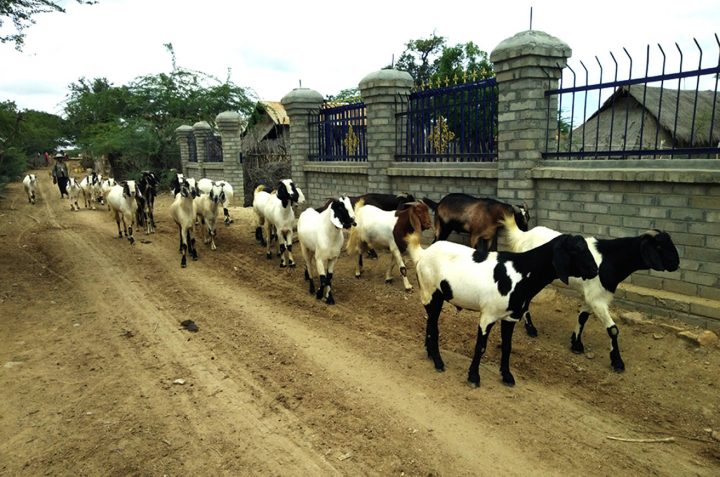
The domestic goat market is falling downward trend due to the COVID – 19 crisis
Myanmar’s goat market is on falling trade trend as the neighbouring countries China and Thailand stopped purchasing the goat amid the COVID-19 crisis, said traders from Mahlaing. It was about two months that there is no demand by neighbouring countries, and the breeders are facing financial hardships. The trade suspension caused the price to plunge by K15,000 per head of a goat. Besides the live goat export, the meat market is not going well either. The prices of lamb and mutton are falling owing to the COVID-19 negative impacts, and the breeders are not financially doing well. -

Thai authorities are dismissed rumour about the Ranong border gate closure
The news that Ranong border gate stopped trade activities with Myanmar is not true and trade still goes on as normally as usual, according to a statement released by Thai authorities. Thailand had extended only Covid-19 restrictions but would continue trade with Myanmar, Thai news websites also reported. Before that, some media outlets in Myanmar reported that Ranong border gate had closed since October 4. -
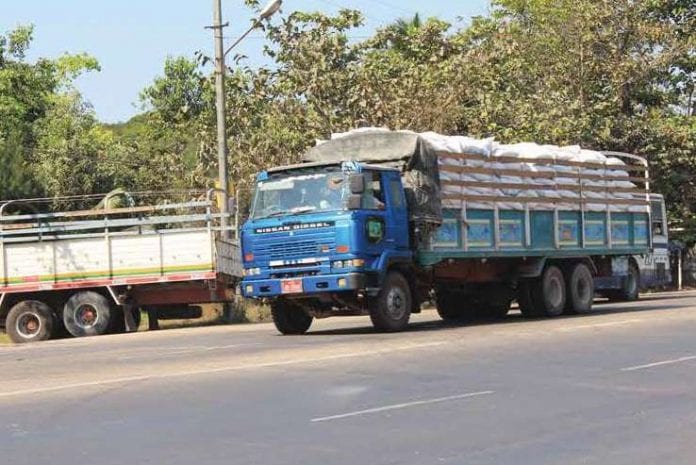
Government allowed all freight trucks to drive on Yangon – Mandalay highway which aiming to streamline trade flow
The Ministry of Construction, aiming to streamline trade flow, will allow all the freight trucks to drive on the Yangon-Mandalay Highway paying toll charges. It will allow the trucks to use the highway between October 6 and November 30 and the trucks must follow the instructions and inspection of the highway police. Private cars are ordered not to drive over 100 km per hour, passenger buses not exceeding 80 km per hour, light trucks 60 km per hour and freight trucks within 60 km per hour. -
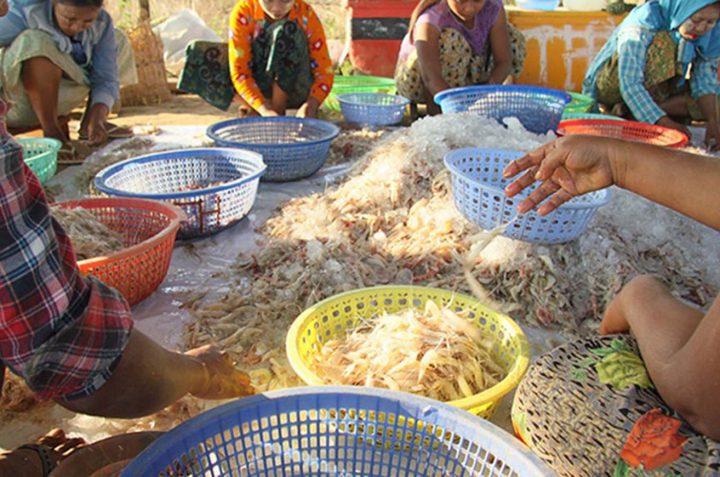
Myanmar fishery export earnings soar to over USD $ 847 million in the 2019 – 2020 financial year
Export earnings from the fisheries sector during the period between 1 October and 25 September in the financial year 2019-2020 reached US$847.5 million, an increase of $125.65 million from the year-ago period, according to statistics released by the Commerce Ministry. The figures stood at just $721.865 million during a-year ago period. During the current financial year, the fishery exports are expected to reach a record high. Myanmar Fisheries Federation (MFF) expected to earn more than $800 million from fishery exports in the FY2019-2020, and it got a target. Myanmar exports fisheries products, such as fish, prawns, and crabs, to markets in 40 countries, including China, Saudi Arabia, the US, Japan, Singapore, Thailand, and countries in the European Union. Myanmar’s fishery exports have slightly declined over the past three months, owing to the COVID-19 impacts. However, Myanmar witnessed a large volume of exports in the post-pandemic period. The MFF is making concerted efforts to increase fishery export earnings by developing fish farming lakes which meet international standards and adopting advanced fishing techniques. To ensure food safety, the foreign market requires suppliers to obtain Hazard Analysis and Critical Control Points (HACCP) and Good Aquaculture Practices (GAqP) certificates. To meet international market standards, fishery products must be sourced only from hatcheries that are compliant with GAqP. The MFF is working with fish farmers, processors, and the Fisheries Department under the Ministry of Agriculture, Livestock, and Irrigation to develop the GAqP system. -
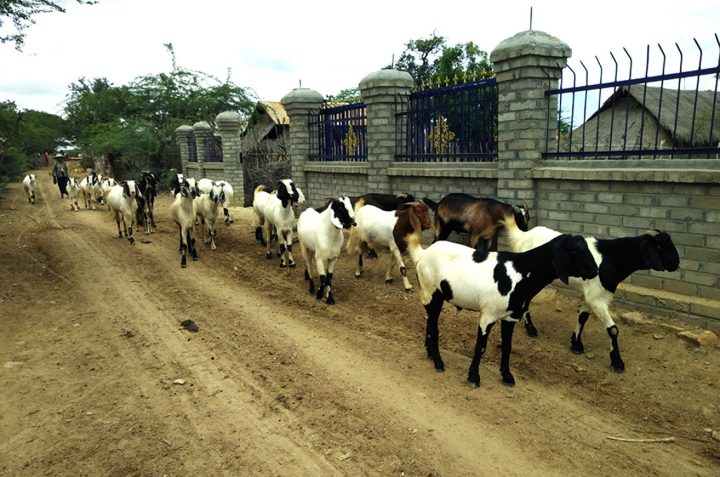
The domestic goat market is on downward trend due to the COVID – 19 crisis
Myanmar’s goat market is on falling trade trend as the neighbouring countries China and Thailand stopped purchasing the goat amid the COVID-19 crisis, said traders from Mahlaing. It was about two months that there is no demand by neighbouring countries, and the breeders are facing financial hardships. The trade suspension caused the price to plunge by K15,000 per head of a goat. Besides the live goat export, the meat market is not going well either. The prices of lamb and mutton are falling owing to the COVID-19 negative impacts, and the breeders are not financially doing well. -

Foreign investments into Thilawa Special Economic Zone (SEZ) down by USD $ 200 million in 2019 – 2020 financial year when compared to the same period of last year
Foreign investments of over US$163 million have flowed into Thilawa Special Economic Zone under the Special Economic Zone Law in the financial year 2019-2020 (October-September), and FDI inflows were down by $200 million compared with the previous FY2018-2019., the statistics released by the Directorate of Investment and Company Administration (DICA) indicated. Between 1 October and 30 September of the FY2019-2020, eight foreign enterprises were given the green light, ploughing in capitals of $163.277 million. During a-year ago period, 16 enterprises with an estimated capital of $362.28 million were given the go-ahead in the zone. The number of permitted or endorsed enterprises this year was eight lower than last year. Similarly, the investment value fell by $199.003 million compared to the previous FY, the DICA stated. -
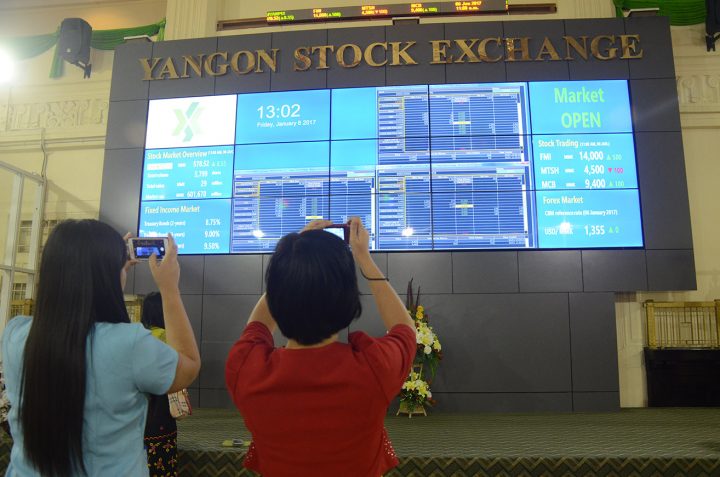
The shares value trade on the Yangon Stock Exchange (YSX) drops to lowest in September 2020
The volume of shares traded on the Yangon Stock Exchange (YSX) in September sank to the lowest level of 85,237 shares, yet the value slightly rose to K838.6 million against August’s rate due to the increase in share prices, according to YSX’s monthly report. The trading volume last month plunged from 118,850 shares registered in August, the statistics indicated. The stock markets worldwide have reported their largest declines since the 2008 financial crisis. Similarly, the local equities market is also scared by the COVID-19 crash, a market observer points out. Moreover, Myanmar people like to invest in property, currency and gold market. Most of the local people are accustomed to investing in the gold market rather than the stock market. They will buy them if they have extra money. The cash out was when they need. At present, people are putting money in savings, rather than investing the COVID-19 crisis, he added. At present, shares of six listed companies — First Myanmar Investment (FMI), Myanmar Thilawa SEZ Holdings (MTSH), Myanmar Citizens Bank (MCB), First Private Bank (FPB), TMH Telecom Public Co. Ltd (TMH) and the Ever Flow River Group Public Co. Ltd (EFR) are being traded on the exchange. -
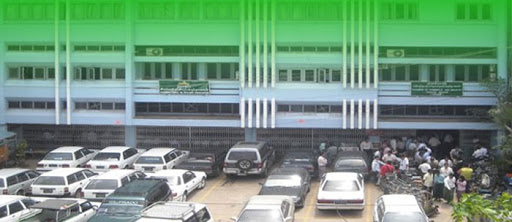
The amount of commodities from other States and Regions to Bayintnaung market plummets by three fourths during the COVID – 19 outbreak
The amount of commodities coming from various states and regions to the Bayintnaung Wholesale Market in Yangon Region has reduced by three fourths during the Covid-19 outbreak, said wholesale market chairman Khin Han. “Due to travel restrictions, only one quarter of goods come to Bayintnaung Market. That means they have decreased by three quarters. Previously, 1,000 to 1,300 trucks came to the market daily. Now, we see only 350 to 400 a day,” he said. He, however, commented that commodities could increase on Monday or Tuesday. -

The domestic investment reached K 1,881 billion and USD $ 413.6 billion in the previous financial year
Domestic investments by Myanmar citizens have reached K1,881 billion and US$413.6 million in the previous financial year 2019-2020 since October, according to the statistics released by the Directorate of Investment and Company Administration (DICA). Between 1 October and 29 September, Myanmar Investment Commission (MIC) and the respective region and state investment committees gave the green light to 103 local enterprises to invest in various sectors. Domestic investments have flowed into the real estate, manufacturing, hotels and tourism, construction, industrial estate, energy, mining, livestock and fisheries, agriculture, and other services sectors. -

Myantrade plans to set up a supportive service system to benefit the local entrepreneurs
Myantrade will set up a supportive service system for the local entrepreneurs, according to an officer from the organization. To set a milestone of the business support in Myanmar, the Myanmar Trade Promotion Organization provided advanced trade information service and management technique pieces of training to some 40 government officials from Myantrade headquarters and regional trade centres and 15 Myanmar commercial trade attaches from foreign countries. The two-day training that started from 22 to 24 September is part of the larger initiative aims to upgrade the availability and accuracy of businesses, market and trade information available to the local small and medium-sized enterprises (SMEs) which want to reach foreign markets. The training gave Myantrade’s trade information officers the practical skills on how to analyze trade and market information resources. Providing reliable and timely trade information will enable the officers to assist their small businesses better to make them competitive in the global markets using up to date market intelligence. So, the exporters can get information safely online during COVID-19 crisis.
เกาะติดข่าว
Copyright © 2014 Business Information Center All Rights Reserved.







